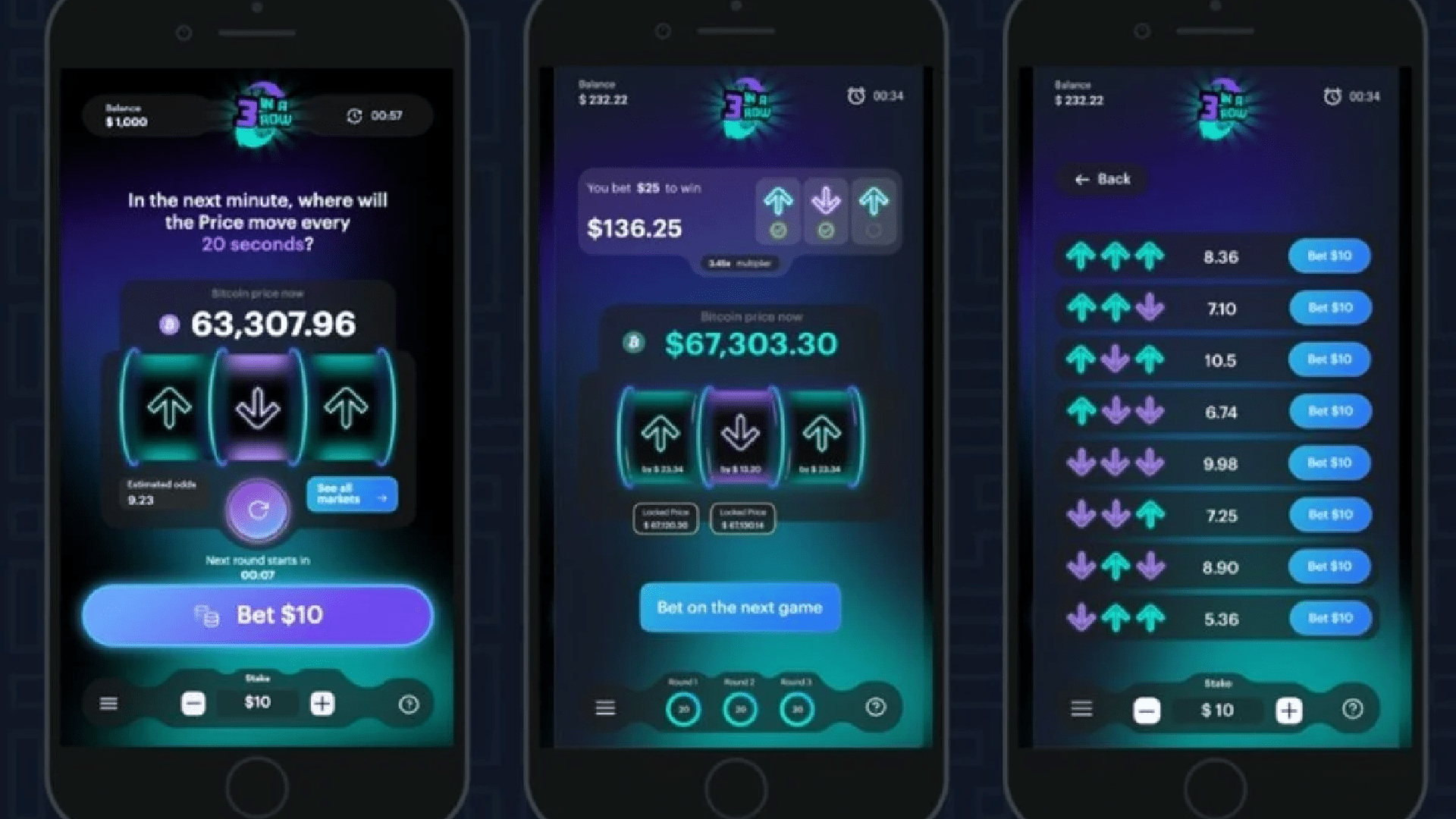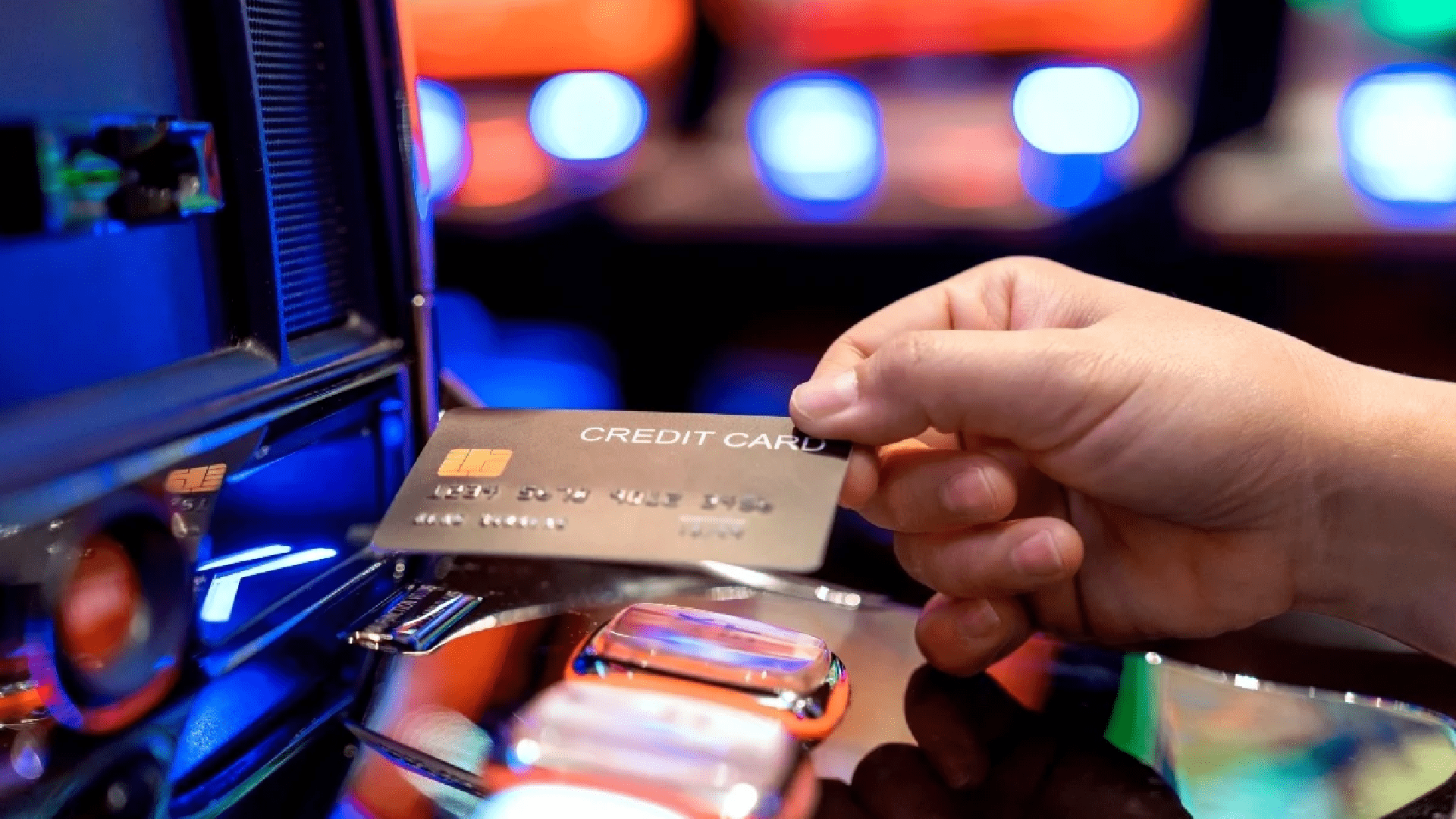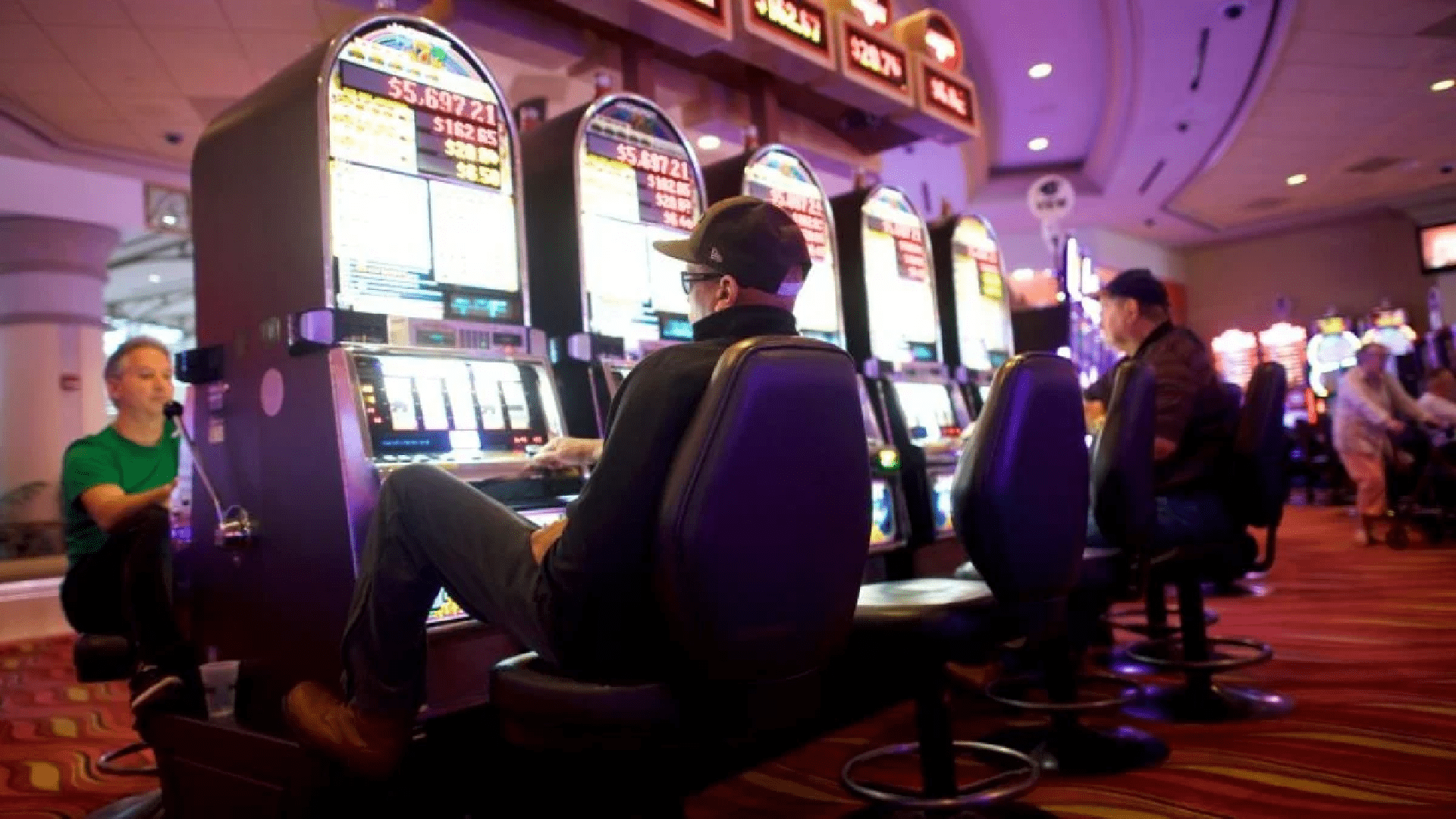
Interview: Bitblox and the Rise of Crypto-Powered Prediction Gaming
Gambling is no longer simply about placing 10 dollars on a horse and wishing for a lucky outcome. With innovative iGaming offerings such as Bitblox, you can now place strategic bets on the movement of Bitcoin’s price, either up or down, across three successive 20-second periods within one minute through a platform that connects real-time market information.
Casino.org interviewed Bitblox CEO Brandt Page regarding the innovative realm of crypto-driven prediction games.

Bitblox CEO Brandt Paige’s platform invites users to speculate on the short-term fluctuations of Bitcoin
Brandt, your firm offers games that predict outcomes based on skills. Could you clarify what these are and what motivated you to make them?
Skill-based prediction games are fundamentally a type of wagering where the result of each round is determined by factors other than a random number generator (RNG). In our scenario, participants are trying to accurately predict the price fluctuations of the actual Bitcoin market, making their success dependent on authentic real-world data rather than merely random luck.
I would argue that Bitblox games find a perfect balance between chance-based games and skill-based games, since players don’t require any background knowledge of crypto markets to participate – and I believe that was the true motivation behind our vision for creation.
Instead of modifying an existing RNG-based format such as slots or table games, we aimed to create an entirely new vertical within the iGaming industry, one that would attract both seasoned bettors and casual players alike, and I believe our distinctive format has achieved that.
These games are created for a younger audience that is proficient with technology. Do you believe this demographic is disinterested in more conventional gambling games? Is it due to their preference for a facet of decision-making? A distinct kind of engagement and feeling of reward?
I believe this is a fascinating question, and it’s one that we are certainly learning more about as we refine our products each month. I wouldn’t claim that the younger market is “turned off” by conventional gambling formats, since developers focused on slots and casino games are definitely creating their titles with this demographic in consideration.
What I would mention, though, is that there’s certainly information available indicating that these younger, more technology-oriented players are attracted to games where they take a more active part in determining the result of each betting round. I believe for many of them, having some degree of influence or control over their chances of winning or losing is much more captivating than merely being a bystander to RNG. Focusing on Bitblox games in particular, allowing players to utilize their own market knowledge to guide their bets enhances the overall appeal.
Is there truly any skill required to forecast crypto changes within such a brief timeframe?
Everyone is aware that the Bitcoin market – especially in a brief timeframe – can exhibit extreme volatility, but truthfully, this seeming “unpredictability” is a major reason for the widespread attraction of our games.
"When you zoom out and take a longer-term view of the Bitcoin price, there are definite macro trends that can also be used to inform predictions in the short term, and we give bettors all the tools they need to do this through our live price feed.
With that in mind, when you attempt to forecast the direction of the Bitcoin price in a 20 or 60-second interval, the market's natural volatility leads to significant fluctuations – which allows more casual participants to engage by relying on intuition or choosing the option with the highest payout. In this regard, I would argue that there is certainly a level of skill in Bitblox games, but it’s not enough to dismiss players who are unfamiliar with cryptocurrency.
What benefits do these kinds of games offer to operators?
I believe the greatest benefit Bitblox games provide to operators is their combination of chance games and skill-based games (SBGs), which attracts a wide range of players.
We previously encountered a scenario with a partner where they first placed our games in the crash/instant win category, which unexpectedly drew significant player traffic typically focused on sports betting. When they “corrected” this by relocating the games to the sportsbook, they observed the same trend reversing. Ultimately, they simply relocated them to the main page and achieved the best of both worlds.
This clearly indicates the substantial audience that our games can attract, and when you consider that betting rounds are consistently brief across all our offerings, combined with the regular chances for wagering, it results in a product that genuinely resonates with the quick-paced tastes of today's gambling crowd, all while supplying operators with significant user engagement and a dependable profit margin.
The US elections demonstrated the growing popularity of prediction markets. Do you believe that a more decentralized blend of betting and trading might be the future of gambling?
I can’t definitively state whether it will be decentralized or not, but I believe we will increasingly witness a convergence of trading and gambling as time goes on. I envision a future where markets exist for virtually everything, eliminating the need for a single, ultimate gambling or trading platform.
"Instead, you’ll have one place where you can do all your trading – whether that’s financial or crypto-related – all your casino activities, all of your sports betting, and also make predictions on any market you can think of. That’s definitely the current direction of travel, but the big challenge is that there’s a very different regulatory framework for both of those things at the moment and, unless there’s some harmony between the two systems, that’s a big blocker to this sort of hybridization happening.
There’s another situation where individuals from the conventional financial sector observe the gambling markets and conclude, “trading markets are much more efficient – the profit margins are smaller compared to all this gambling where individuals are earning money,” suggesting that traders could potentially dominate gambling sites.
What is your perspective on how the regulatory environment for crypto gambling will evolve in both the short-term and long-term? Is it possible that one day we might witness the regulation of crypto payment systems and blockchain-based games in the US, for instance?
I believe that utilizing cryptocurrency as a payment method for gaming and having the web3 ecosystem truly enable them are two entirely different concepts.
We've undoubtedly observed the emergence of crypto casinos where players can use various cryptocurrencies – including stablecoins such as USDT or tokens like Bitcoin and Ether – indicating that this trend is already well established in the gambling industry.
"On top of that, the election of Trump, who is a very pro-crypto advocate, and his assertion that he wants the US to become a world leader in the space, will hopefully be positive for crypto and crypto markets in general.
In the case of web3, the scenario varies slightly. It remains unproven if web3 can provide – quickly – the kinds of offerings necessary to rival conventional "centralized stack" games such as slots. We haven't reached that point yet, but from my experience with web3 projects previously, I wouldn’t undervalue its potential once the blockchain's speed and bandwidth match that of other technologies.
What do you foresee for cryptocurrency in 2025?
I’ve maintained for a while that I believe crypto isn’t going anywhere, and the occurrences in the last year have definitely not altered my view on this. In the United States, specifically, the present administration has expressed strong support for cryptocurrencies and has even outlined proposals for how Bitcoin could become a more substantial component of the US strategic reserve.
Additionally, the recent bull market and Bitcoin's price hitting a record high have clearly garnered extensive media attention, further highlighting the industry and increasing public interest in cryptocurrencies overall.
I believe all these factors create an ideal scenario for additional crypto growth in 2025 – and while I won’t predict what that might imply for prices, it seems reasonable to say we’ll witness greater adoption from companies and increased regulation as well.








